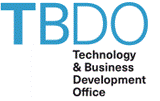Intellectual Property Rights
When the TBDO faces a new disclosure, many questions arise:
- What is the invention about? What would be the final product?
- Is the product/invention patentable? Are there other forms of protection? Are they necessary for the effective commercialization of that product/invention?
- Is there a market for the product/invention? How big is it?
- Are there alternatives / competitors / advantages to/of our technology?
- Can we find a business interested in licensing, developing and commercializing this technology, or should we start a new company?
- How much development is needed? Are there available funds?
- Are third parties involved?
- Are researchers motivated to bring the technology forward? In which form?
- Etc.
Amongst these, the possibility and best way to protect the results through Intellectual Property Rights (IPR) is a critical one (albeit not the only one).
IPR is an umbrella term for various exclusive rights that protect ‘products of the mind’, including:
- Industrial Property Rights:
- Patents and utility models → technical innovations
- Plant variety rights → new plant varieties
- Industrial design rights → innovations in design
- Trademarks → corporate identity
- Intellectual Property
- Copyrights → Literary, artistic and scientific creations (e.g. software)
- Others
- Know how/trade secrets → confidential information
IPR (in particular patents) are essential to protect life science innovations so that they eventually reach the market. Indeed, IPR are often the guarantee that a party (the owner), and no other without its permission, will be able to commercialize a particular technology or exclude others from doing so. This is fundamental for technologies that require high levels of investment to be developed into marketable products (e.g. biomedical), as no company or investor will perform such high level of investment without first ensuring that others won’t be able to compete or use the outcome of it, and this for a period of time that is long enough to allow the owner of the technology to recover its investment and make a benefit out of it.
Patents are a major form of protection of results arising from the research done at CRG. If an invention appears suitable for patenting, TBDO will engage outside experts to evaluate, draft and file the necessary patent to protect the invention. When appropriate, the CRG will use other forms of protection, such as copyright and trade secret to protect and commercialize its inventions or works of authorship (e.g. software). If you are interested in learning more about patents and other forms of intellectual property, please click here. Otherwise, please be aware that:
- Patents protect inventions that are novel, inventive, and involve and industrial application. While the latter is usually out of question, and inventiveness may be a matter of discussion, novelty means that no public disclosure in whatever means and form has been made prior to filing a patent. In the context of a research institute such as CRG, this means that no prior abstract, presentation or publication exists that discloses the invention or parts of it. Nevertheless, fling a patent can be relatively fast, and it is in no way an obstacle for publication if properly managed. This also means that, if you want to disclose a potentially relevant result to a third party, be it industrial or academic, you’d rather do it after having a non-disclosure agreement in place (also known as confidentiality agreement). Your TBDO will assist you with this, so please do not hesitate to get in touch with them if needed.
- Authorship/inventorship and ownership are nor necessarily the same thing. Thus, according to Spanish Law and our internal policies and guidelines, ownership of results and inventions arising from work performed by the CRG researchers in the scope of their activity/employment at CRG belong to CRG. Authors/Inventors have the right to be mentioned as such, and to be compensated for their works/inventions as described in the CRG policies and guidelines.

More info
In case of doubt, please do not hesitate to contact your TBDO manager.

